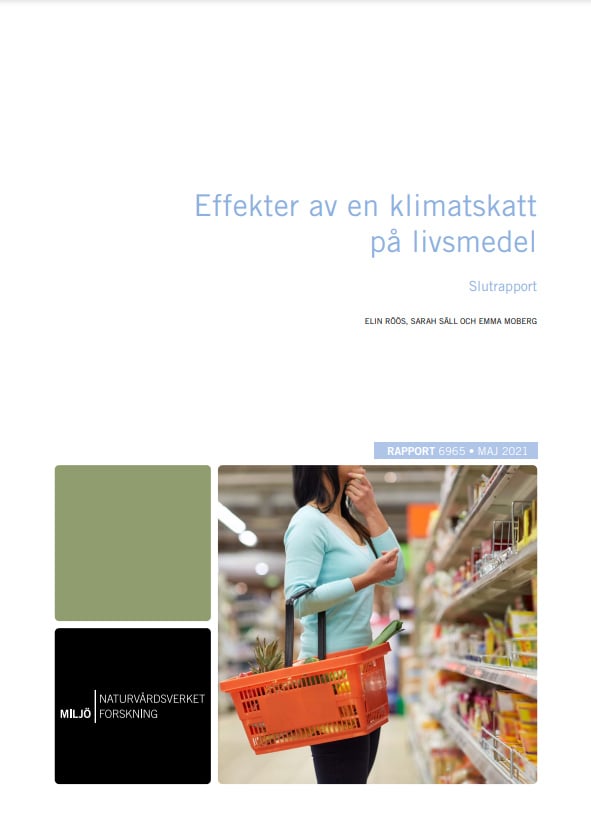Climate effects of a consumption tax on food

About this report
The results show that a consumption tax on food that corresponds to the Swedish 2015 carbon dioxide tax (SEK 1.15 per kg CO2) and that includes all emissions from a life cycle perspective up to retail, would have the potential to reduce greenhouse gas emissions from food consumption by just over 10 percent. The price of average beef increases by 18 percent with such a tax, while the price of vegetables only increases by a few percent. If the tax only covers animal products, the emission reduction will be 8 percent. If only beef, which is the food product that causes by far the most greenhouse gas emissions per kg, is taxed in the same way, emissions will be reduced by about four percent. If the tax only covers emissions of methane and nitrous oxide in agriculture the reduction in emissions is also about four percent. A climate tax on all food products is regressive, i.e. low-income groups will pay a larger share of their income in food tax. Previous research has shown that a tax on only meat affects the middle class the most.
